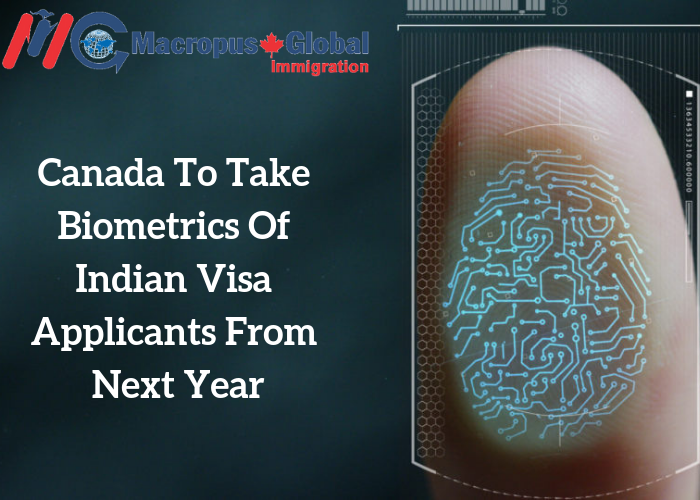Canada To Take Biometrics Of Indian Visa Applicants From Next Year
- Home
- Biometrics Of Indian Visa Applicants
- Canada To Take Biometrics Of Indian Visa Applicants From Next Year
Canada To Take Biometrics Of Indian Visa Applicants From Next Year

The Immigration, Refugees and Citizenship Canada (IRCC) announced that effective 31 December 2018, India will be included in the list of countries which need to provide biometrics of visa applicants, including visitors’ visa, students’ visa, work permits and permanent residence presently, only the United States, the United Kingdom and the Schengen States require biometric details of visa applicants.
On July 31st 2018, Canada has started requiring biometrics of visa applicants from the Middle East, Europe and Africa and from December 31st 2018 onwards will start taking biometrics of visa applicants from Asia, Americas and the Asia Pacific.
There is an exemption from providing biometrics of visa applicants such as applicants younger than 14 years old and older than79. Asylum seekers are not exempted from biometrics.
IRCC explained that the biometrics of visa applicants has a 10-year validity, and visa applicants do not need to provide their biometrics before the expiry of this 10-year period. The cost of providing biometrics of visa applicants is $85.00 Canadian dollars, and cost for families applying together is $170.00 Canadian dollars.
Canada is collecting the biometrics of visa applicants as it is a reliable and proven method to accurately establish the identity of a person. Over 70 different countries use biometrics of visa applicants while processing visa and immigration applications. By collecting the biometrics of visa applicants, the Canadian Government will be able to effectively manage identity, improve facilitation of the application process, and simplify the entry of travellers having authentic identities.
How will Canada use the biometrics of visa applicants? The biometrics of visa applicants will equip immigration officers with additional information in making a more accurate and informed decision regarding a person’s admissibility in Canada. Further, the biometrics of visa applicants will be stored with the Royal Canadian Mounted Police (RCMP) in its National Repository towards cross-checking with criminal records and immigration. This will help both the police and the immigration officers to confirm whether Canada immigration visa applicant has a prior criminal record or has been deported or removed from the country in the past.
Sharing of biometrics of visa applicants with other countries such as the United States, the United Kingdom, New Zealand and Australia will further assist the integrity of the Canadian immigration system in accordance with various Canadian laws pertaining to privacy, civil liberties and human rights, which include the Canadian Charter of Rights and Freedoms.
The Canadian Border Services Agencies (CBSA) will easily be able to confirm and ascertain the legitimate identity of a traveller with fingerprint verification being automatically conducted at the main inspection kiosk at eight major airports in Canada. This will further enhance the efficiency and timely entry of travellers into Canada with.


